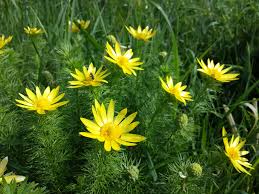
From an excellent and exhaustive article on this subject we excerpt the following conclusion:
According to its symptoms Adonis is especially indicated in diseases of the heart with or after rheumatism; the rheumatic troubles being, according to Dr. Gisevius, the leading indication to choice of the remedy. But it surely is also of use in other diseases of the heart, especially after infectious diseases. When the fibres of the muscles of the heart show coagulation of the albumen showing itself in a turbidity produced by albuminous and fatty grains and little drops, the advance stage of fatty degeneration of the muscle of the heart. The remedy then seems to spuron again the paralyzed muscular cells and to contribute to the absorption of the turbidity. This may appear from the following case:
CASE – 1. Mrs. F., in H., had just passed through a severe infectious disease with a continuous fever of 103 to 104.50 Fahrenheit. All at once after eight days the fever sank to 101.50 , at the same time the pulse, which up to this time had been vigorous and good, became intermittent, the heart-beat also after every third or fourth beat intermittent for a while; this was accompanied by palpitations at the slightest excitement with anguish and oppression. After Adonis 1, two drops given twice in twelve hours, the pulse and the activity of the heart again became quite normal and also remained so during the rest of the disease and re convalescence, without requiring another dose of the remedy.
Also, in myocarditis with a callous degeneration of the heart (infarcts of the heart) it seems to be indicated by its symptoms, anomaly of the activity of the heart, the pulse is frequently irregular with respect to the rhythm and the intensity of the slight beats; its frequence is frequently increased, not rarely it becomes double; increase of the dullness of the sound of the heart. The sounds of the heart are clearly audible, at times pretty loud and like clapping; attacks of dizziness and constriction.
CASE – 2. Mrs. W., a little over sixty years old, says that she has had disease of the heart of twenty years; last year she passed through catarrh of the tips of the lungs, which was almost completely cured by staying in the woods of Bregenz. There is a tendency to feverish diseases (influenza) and convulsive inflammation of the artirics of lighter degree. She came to my office on August 22, complaining of constriction and dyspnoea with headache. Pulse, 108, regular. Next morning I was called to her, as she had been unable to sleep all night. The patient sat straight up in bed, and was excited; the mucous membranes, as far as it could be seen, were bluish; the face was bloated, pale; the pulse was very much accelerated, could not be counted, quite irregular; the action of the heart also was stormy, the sounds of the heart were clear. Adonis 1, ten drops an hour; in ten minutes after taking the first ten drops the pulse and the action of the heart were quite regular and under the continued use of the remedy they have remained so up to this time, although she has since had to pass through a slight feverish disease.
While this case shows to us the magical, quick and thorough action of Adonis on the heart, the first case shows how small a quantity of the remedy suffices to bring back an excited and irregular action of the heart to the normal. In general, it seems to me that the doses, especially, of course, with allopaths, are too large, thereby frequently causing an injury to the diseased muscle of the heart. That even small doses of Adonis are sufficient to allay severe disturbances of the heart may be seen by the following case:
CASE – 3. A.H., sixty years old, a day laborer, haggard and slim; he is a drinker drinking chiefly and, indeed, daily, much whiskey (more than a quarter of a pint besides the usual quantity given to domestics). The face is bluish-red; dyspnoea. The pulse is accelerated, irregular; thee action of the heart intermittent; the legs swollen with oedema. In spite of various remedies given, the condition of the patient became worse, so that the hydropic swellings reached the region of the navel. The sexual origans, especially, were so much swollen that urination gave much trouble. After he was taken to the hospital, he received Adonis 1, ten drops every two hours; thee result being that the quantity of urine was at once increased (he had to urinate so frequently, also at night, that he wished to stop taking the remedy on that account), so that after eight days all the swelling had disappeard and in four days more he could leave the hospital, cured. Since then, although he had again to do hard work and also resumed the drinking of whiskey in its full measure, the activity of his heart has been quite good, as I had occasion to find out only a few days ago.
According to my experience the remedy is often indicated epidemically; so I lately had many cases of attacks of vertigo, palpitation of the heart and anxiety, mostly with accelerated pulse (up to 120), but without fever, in which Adonis I generally gave quick relief.
We may compare with Adonis in this respect:
1. Strophanthus. This also acts quickly (we frequently see an improvement of the dyspnoea within a quarter of an hour). Nevertheless, it has often left me in the lurch of late. Penzoldt reports the same: “I am decidedly of the opinion that it leaces us in the lurch much more frequently of late years than formerly.” Other colleagues also have told me the same.
2. Cratagus. After severe infectional diseases; others again have seen little effect from this remedy.
3. Kalmia. Rheumatic affections of the heart.
4. Digitalis. Violent, but not very rapid palpitation, pulse small, irregular, slow.
5. Kali carb. Attacks of palpitation which take the breath away; the action of the heart is irregular, stormy or weak; but mostly attended with stitches in the heart or through the shoulder blades.
6. Spigelia. Palpitation at the slightest movement, pulse irregular; anguish and constriction; headache.
7. Natrum muriaticum. Ausious, oppressed respiration; dyspnoea, when walking quickly; anxious palpitation with headache in the morning when moving about or exerting oneself.
Dr. Kernler, in Weingarten

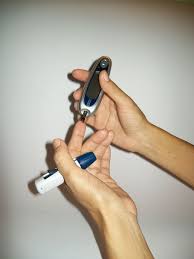
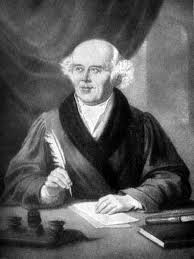
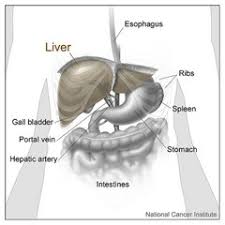
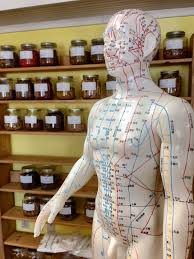
Amazingness is the only performance tool you need to be extra productive and also obtain even more done in your life.
Remarkable is a wonderfully developed tool that will certainly aid you discover the very best products in any kind of group quickly and also quickly.
Extraordinary is an all-in-one life management system that assists you obtain more done in much less time.
Register now and also get started on your trip today!
Phenomenal is a cutting edge, multidisciplinary as well as multifunctional natural supplement that makes sure the promotion of your health by enhancing your overall wellness.
Phenomenal is an all-in-one time management solution that will help you be a lot more efficient than ever before!
Impressive benefits of this are unrivaled!
Amazing deals a special mix of supplements that will transform your life for the better!
Remarkable is a complimentary application that can improve your life in amazing methods.
Sensational is the excellent efficiency tool that can help you manage your time far better and get more done in less time!
Amazingness is your solution to a extra productive life.
Remarkable is an all-in-one time monitoring service that will certainly help you be extra effective than ever before!
Incredible can aid you begin living a much more healthy and effective life.
Amazingness is everything you require to be a lot more efficient, have a lot more power and really feel better daily.
The Amazingness life-altering overview can assist you be much more effective, stay much healthier, and appreciate life a lot more!
Phenomenal is the one stop look for every little thing productivity.
It’s the perfect means to get everything done and finally take pleasure in a complete top quality life.
Efficiency, Mindfulness as well as Joyful Way Of Life Layout.
Sensational is a effective as well as one-of-a-kind nutrition, supplement and way of life service.
Terrific to obtain one of the most out of your money. Amazing!
Amazing is an all-in-one life management device that will make your life less complicated than in the past.
Accomplish every one of your most important things quicker as well as easier!
Attain all of your crucial points faster as well as easier!
You can do excellent and attain more!
Discover the Amazingness of life with this one simple change.
Obtain the most of what you desire and this will certainly aid!
That’s right, it’s a software application that allows you to be extra efficient.
The only high-quality and finish all natural rest help that guarantees a full, deep revitalizing evening’s rest!
This will certainly give you an extraordinary advantage over the remainder of your competition.
From even more efficiency to better sleep, Amazingness can help you do even more as well as feel incredible.
Absolutely nothing can be like this!
Amazing is a time management tool that will assist you be much more effective than ever before.
You’re going to take pleasure in every element of your life a lot a lot more.
Phenomenal is the only productivity tool you need.
Amazing will change your life right!
Amazingness is everything you require to be more effective, have extra energy and really feel far better each day.
No matter what your age, intend to do and be impressive.
Discover exactly how else this can aid you with your health and fitness objectives!
Hello there, just became alert to your blog via Google, and found that it is truly informative. I am gonna watch out for brussels. I’ll be grateful if you happen to continue this in future. Lots of folks will probably be benefited out of your writing. Cheers!
I’m impressed, I need to say. Actually not often do I encounter a blog that’s each educative and entertaining, and let me let you know, you may have hit the nail on the head. Your concept is excellent; the difficulty is something that not sufficient persons are speaking intelligently about. I am very blissful that I stumbled across this in my search for something referring to this.
What’s Happening i’m new to this, I stumbled upon this I have discovered It absolutely useful and it has helped me out loads. I’m hoping to contribute & aid different customers like its helped me. Great job.
It is a one of its kind. Like no other.
Hello, i think that i saw you visited my site so i got here to “go back the want”.I’m trying to in finding issues to improve my site!I suppose its good enough to make use of a few of your ideas!!
I’m not that much of a online reader to be honest but your blogs really nice, keep it up! I’ll go ahead and bookmark your website to come back later on. All the best
For those that are experienced in developing fantastic material on their own!
The tools to assist you achieve your goals and maximize the time!
Amazingness is every little thing you need to be much more effective, have more energy as well as really feel better everyday.
Amazing is the excellent option for anyone seeking to get even more done in less time!
Remarkable is a special productivity device that can transform your life.
Attain extra and do it much better with Amazingness!
naturally like your web site but you have to check the spelling on several of your posts. Several of them are rife with spelling problems and I to find it very bothersome to inform the reality however I will certainly come again again.
Appreciate the advantages of a healthy, pleased and also extravagant life with this outstanding item.
Experience outstanding benefits with the remarkable Amazingness.
Drink this, and also the outcome will certainly astonish even yourself.
Get every little thing done and dealt with with this single bargain!
The most incredible product benefits you’ll ever before be familiar with!
The Amazingness life efficiency system provides you even more energy and time to do what you like.
This is an impressive device to assist you with every little thing else.
Benefit from one of the most incredible items on the marketplace!
This is an fantastic tool to assist you with whatever else.
Hey there I am so excited I found your webpage, I really found you by mistake, while I was looking on Aol for something else, Anyways I am here now and would just like to say thanks a lot for a incredible post and a all round entertaining blog (I also love the theme/design), I don’t have time to read through it all at the minute but I have book-marked it and also added your RSS feeds, so when I have time I will be back to read more, Please do keep up the excellent work.
This is the most effective ever!
You will certainly never ever need to worry about getting anything done again.
Perfect for showing your friends!
Phenomenal is the one quit shop for efficiency as well as time administration.
Extraordinary is a one-of-a-kind performance tool that can alter your life.
Have fun and obtain things finished with the most outstanding tool!
Just act and also attain whatever you desire.
Incredible is the most effective performance application as well as time management device that you will certainly find.
Currently, picture how much more fantastic life could be with this fantastic item that helps make it all occur!
Amazingness can aid you change your life right in means you never believed feasible.
Hello there, I found your site via Google while looking for a related topic, your website came up, it looks great. I’ve bookmarked it in my google bookmarks.